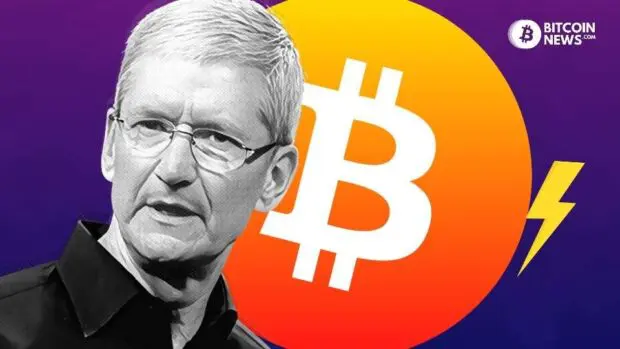According to a tweet by Damus on Tuesday, the decentralized social networking app based on Nostr is given a warning by Apple’s app store. The app has 14 days to ensure its tipping feature, which uses the Lightning network, is in compliance with the store’s guidelines. Failure to do so may result in the app being removed from the store.
Damus’ tipping function, referred to as “zaps,” allows users to send bitcoin to their preferred content creators using the Lightning network. However, it seems that this feature has violated Apple’s terms by not utilizing the in-app purchase mechanism provided by the tech giant.
In light of the upcoming appearance of the team at Oslo’s Freedom Forum, where they plan to discuss how bitcoin and decentralized social media can contribute to financial freedom, Damus characterized Apple’s action as rather suspicious.
Read more on the subject : What is Nostr? Basic Concepts Explained
According to William Casarin, a developer at Damus, Apple is attempting to justify its stance by claiming that the ability to zap — as a means to facilitate the sale of digital content via Lightning — goes against their guidelines.
Additionally, Casarin clarified that although Damus did not directly facilitate the sale of digital content using bitcoin, the recent crackdown on peer-to-peer payments implies that any app allowing users to share Lightning invoices could be subject to the same reasoning and potential consequences.
Walker, one of the developers and creators of Nostr, argued in a tweet that the content shared on Damus are posted by Nostr and are completely free. He added users don’t pay for the content, and therefore nothing is “purchased.”
Apple‘s app store has encountered previous conflicts regarding its control over emerging technologies. Towards the end of 2022, the company introduced a 30% commission on in-app sales of NFTs, a decision that was criticized by Tim Sweeney, CEO of Epic Games, as being ” grotesquely overpriced.”
Apple’s significant revenue share once again gained attention this year, this time in relation to OpenAI‘s renowned chatbot, ChatGPT. The creators of the machine learning model decided to comply with the app store’s terms by utilizing Apple’s in-app purchase mechanism instead of establishing a separate subscription platform.










